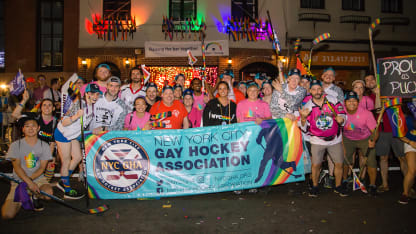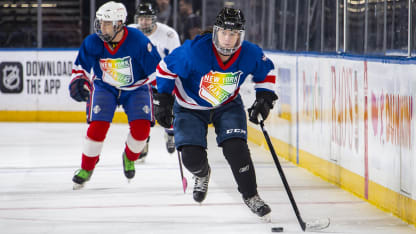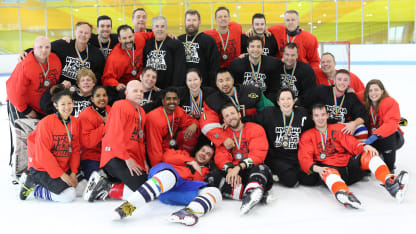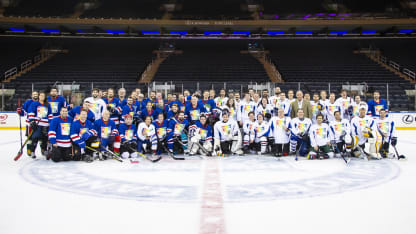After Minck attended the TGHA tournament in 1997 with Kagan, the two decided the time was right to create a similar organization in New York. Minck placed ads on the internet and in local magazines in inviting people to the NYGHA's first meeting at the LGBT Center of New York.
"We had six people show up, which was kind of surprising, but we were happy to have those six people," Kagan said. "We put them to work as our ambassadors. We said, 'You've got to find a few people who are interested just like we are.' The next time we had a meeting there were nine or 10 people, and it just started to grow from there."
It has grown into one of the largest LGBTQ+ associations in North America and has helped shift the perception of gay hockey players from "a creature of myth," Kagan said, to regulars on the ice.
"The benefit is for people who played hockey previously in their life or are new to the game," Lorenzo said. "It's essential to have a space where people feel they can join in and not be judged on the list of attributes that they may have been judged on in previous athletic experiences, whether it was trying to play in high school or college or the kid who was always picked last in gym class because they were different."
The association has also helped change attitudes. Kagan remembers more than a decade ago when New York Rangers games at Madison Square Garden didn't feel like a welcoming environment for LGBTQ+ people.
Fast forward to March 5, 2020. Fans inside the Garden cheered as Alphonso David, a nationally-recognized LGBTQ civil rights attorney and the first person of color to be president of the Human Rights Campaign, dropped the ceremonial first puck under a rainbow-hued center ice scoreboard before the Rangers faced the Washington Capitals on
Pride Night
.
Earlier that day, NYCGHA members scrimmaged on Garden ice, with former Rangers defensemen
Ron Greschner
and
Tom Laidlaw
serving as honorary captains.
"It's incredible how far we've come," Kagan said. "It's not something that I ever, ever imagined the first time we had a meeting, that the New York Rangers would play with us and play at Madison Square Garden."
By creating a welcoming environment, the association has attracted straight players, who now account for about 70 percent of NYCGHA's 257 members.
"The reason for that is the people that come to play with us they see they we're a great group of people, that we play fair, that we're very organized, we have great jerseys," he said. "I supposed they wanted to support the LGBT community and that was a way to do it, by playing amongst us."







